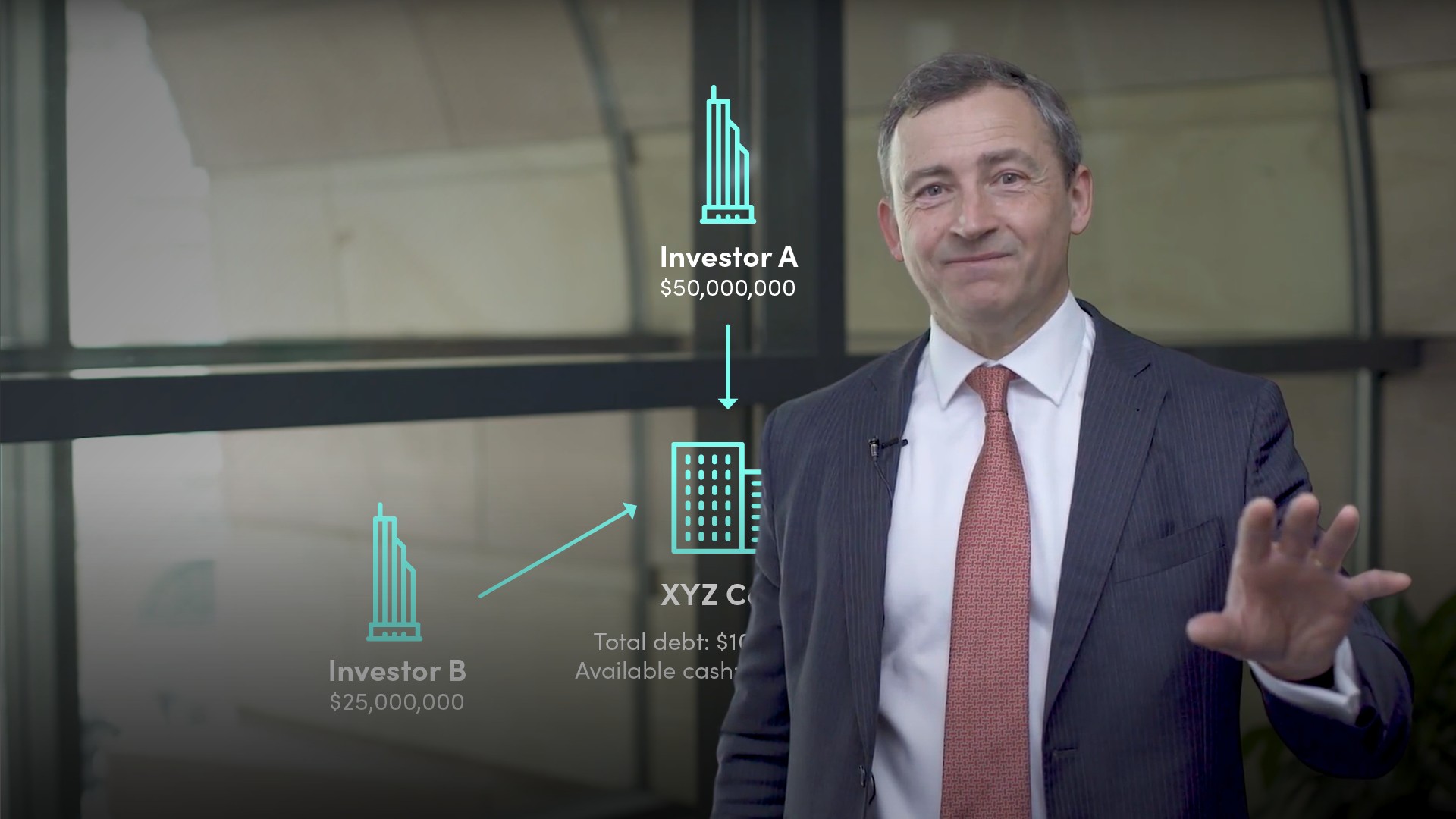
What is Pari Passu?

Tim Skeet
35 years: Debt capital markets
It is key that investors and lenders understand where they stand in the repayment queue should a company default. In this video Tim discusses the pari passu clause, a standard feature in debt agreements ensuring creditors are aware of when they will be repaid, in relation to other lenders.
It is key that investors and lenders understand where they stand in the repayment queue should a company default. In this video Tim discusses the pari passu clause, a standard feature in debt agreements ensuring creditors are aware of when they will be repaid, in relation to other lenders.

What is Pari Passu?
4 mins 22 secs
Key learning objectives:
Define pari passu
Understand the importance of the pari passu clause
Explain why the pari passu clause is different in a sovereign debt document
Overview:
The pari passu clause is a standard feature in debt agreements to ensure investors and lenders are aware of when they will be repaid, in relation to the other lenders, in the event the company becomes insolvent.
What is pari passu?
The pari passu clause is standard in debt agreements, for both corporate and sovereign borrowers and in loan and bond borrowings. It in essence means ‘ranking equally’. It is the clause that dictates who you sit with as a lender or investor in a company’s creditor hierarchy.
Why is it important to know where you sit in a company’s creditor hierarchy?
The credit hierarchy dictates who gets paid in what order. The pari passu clause will ensure that all payments made to your position in the creditor hierarchy are made pro rata - pro rata comes into play if a company has insufficient funds to pay out on its obligations in full.
It helps define a given level of risk for a given level of return. Insolvency regimes vary by jurisdiction, but courts will follow formal processes for deciding who gets what as whatever cash and other assets are left is distributed strictly in order.
What does pari passu protect against?
Pari passu protects against preferential treatment against lenders at the same level of the creditor hierarchy.
What is the typical order of the creditor hierarchy?
A company’s capital structure is a good representation of this; secured creditors being paid off first (in order depending on the structure of a company’s secured obligations) followed by unsecured creditors in order of contractual seniority - i.e. senior unsecured first followed by subordinated and junior debt class with equity holding up the rear-guard.
Why are pari passu clauses in a sovereign debt document different from pari passu clauses in a debt document issued by a company?
Pari passu clauses in sovereign debt documentation are different by definition since governments can’t be declared bankrupt or be liquidated like companies and have their assets distributed to creditors.

Tim Skeet
There are no available Videos from "Tim Skeet"

